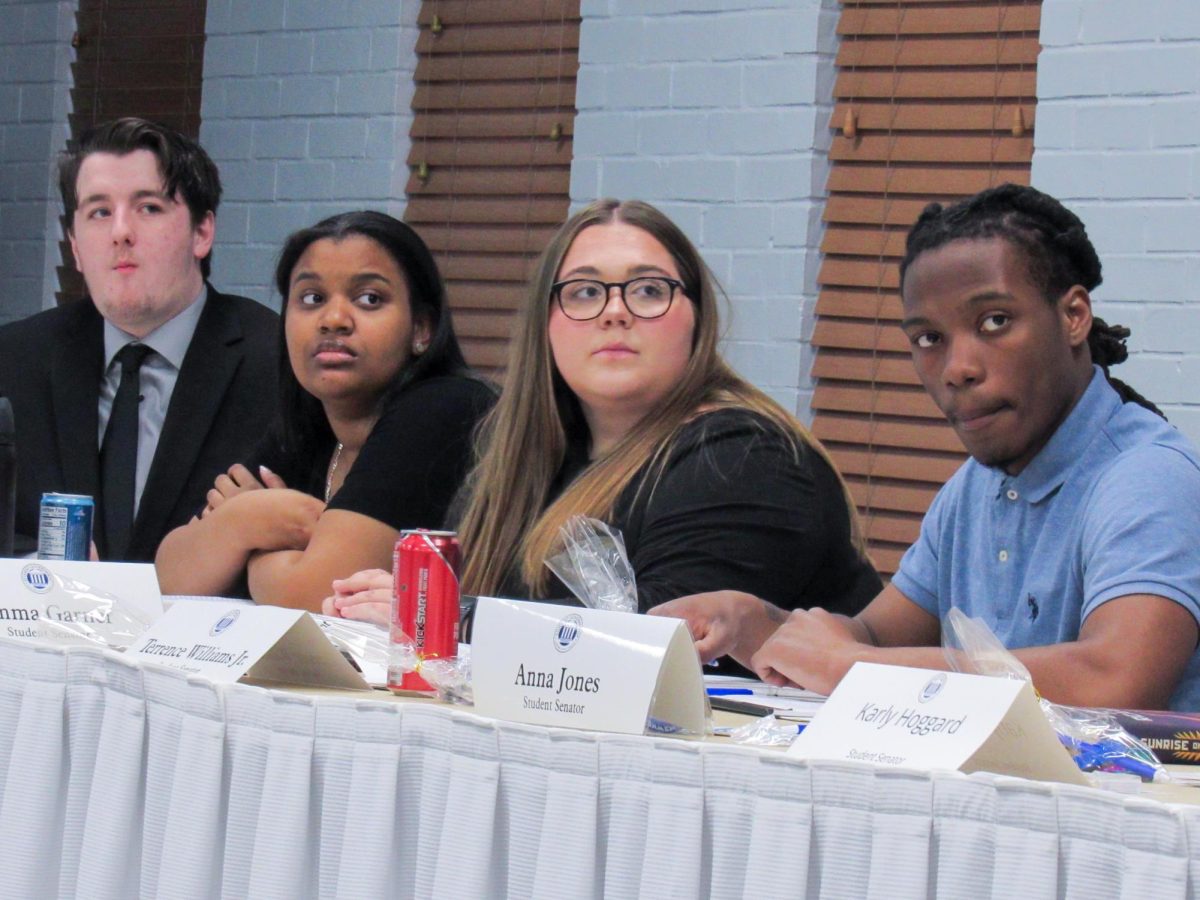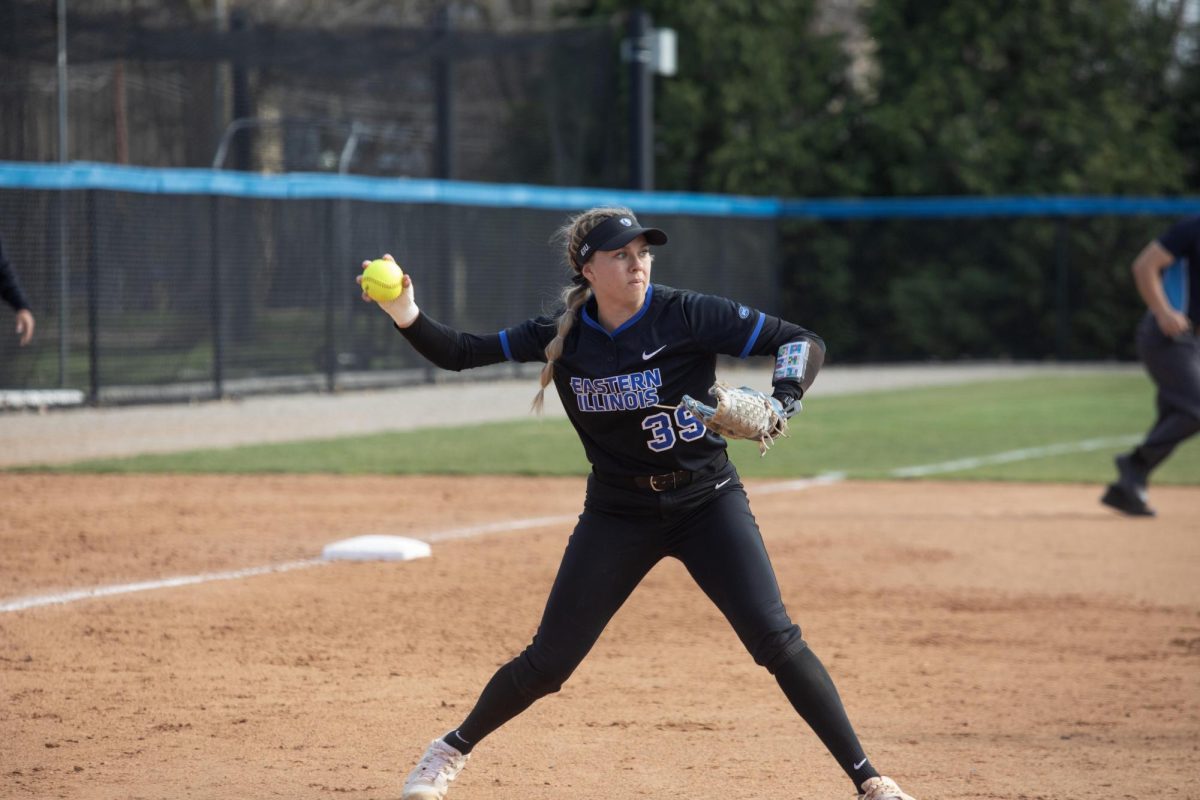Faculty taking on an overload of classes could lead to contractual violations
December 8, 2017
Faculty departures and financial strains on the university have caused faculty members to take on an overload of work assignments, leading to departmental violations of the EIU-UPI contract.
Overload, as defined in the contract, is any course load that is more than 24 credit units a year. Anything over 33 credit units is not allowed.
“The reason for the rule, in general, is that if people are teaching 60, 70, 80 hours a week, the quality of instruction goes down,” said EIU-UPI President Jon Blitz. “You teach too much and you start cutting corners in your classes, and you’re not delivering as high a quality product or curriculum that you would be if you had the time to actually think about what you’re doing.”
Deans and department chairs assign faculty their workload, but taking on overload is voluntary for all Unit A and Unit B faculty.
The EIU-UPI is currently in the process of collecting data on overload from past years.
According to numbers generated by Blitz, in the 2016-2017 academic year, six departments in two colleges, the Lumpkin College of Business and Applied Sciences and the College of Educational and Professional Studies, had faculty assigned more than 33 credit units. Seventeen total faculty members were assigned to have overloads of 33 or more credit units.
The EIU-UPI has also looked at this academic year’s data, though these numbers are tentative because spring workloads and enrollment have not been finalized.
In 2017-2018, Blitz found that there are eight departments in three colleges, the College of Arts and Humanities, Lumpkin College of Business and the College of Educational and Professional Studies, which have faculty who have been assigned more than 33 credit units.
“What the problem here is it doesn’t matter what you put in the contract if people don’t follow it,” Blitz said.
Blitz said the faculty union has brought the fact that there have been contractual violations in these departments to the administration’s attention, but it has not filed a grievance.
Jeff Cross, associate vice president of academic affairs, said the administration has gone back to these departments to see how they can fix the situation.
He declined to comment specifically on what these discussions have entailed, but did say reviews have been ongoing ever since the concern about overload was expressed to the Office of Academic Affairs.
Options for fixing the issue of faculty going over the 33 credit unit limit could include reassigning workload levels, canceling classes or hiring more faculty, but the last option has not always been financially feasible.
“This is a matter that’s in progress,” Cross said. “It’s premature to talk about any of the outcomes.”
The EIU-UPI was originally tipped off by a member of the union that there were contractual violations happening in two departments: the School of Technology and family and consumer sciences.
Blitz said technology was the biggest offender when it came to these contractual violations.
Almost everyone in the department is at some level of overload, Austin Cheney, chair of the School of Technology, said.
In the last two years, the School of Technology has had an influx of new students. This, combined with the financial strain the university went through as a result of the budget impasse and not being able to hire more faculty, is what caused so much overload to be taken, Cheney said.
Cheney said the average amount of overload for a faculty member two years ago was 10 credit units. This means they would have 34, which is one credit more than is allowed by the contract.
To fix this, Cheney said technology is cutting back on classes, consolidating sections and trying to get as many adjunct faculty members as it can to teach the classes.
“It’s very difficult,” Cheney said. “We’re down about 80 students right now from where we were a year ago this time; frankly, that’s the only reason we have the capability of getting people below 30 (credit units).”
Still, Cheney said the School of Technology will handle the issue and get people below 33 credit units in time for the spring semester.
“You’ve got these two conflicting forces if you will; on one hand, we’re not financially viable as an institution to fund staffing positions (and) additional faculty,” he said. “We want to grow, on the other hand, to increase revenue. The bottom line is if you get increased enrollment, there needs to be (adequate) staffing.”
Technology professor Isaac Slaven is taking on 23 credit units this semester. He was originally going to do the same next semester, but this went down to 10 credit units after he was told he could not do 23 anymore.
Another technology professor, David Melton, was at 57 credit units at one point, but after evaluating the fall and spring semester, the department got him down to 33.
“I never knew that was in the contract,” Melton said. “It’s never been an issue.”
Up to this point, he had been averaging 45 and a half credit units.
“I don’t think most of the faculty knew that there was this 33 limit,” Melton said.
Because their industry often requires working long hours, Melton and Slaven said taking on this overload does not bother them.
“Most of us have been there know how to work smartly, efficiently,” Slaven said. “It’s a little bit of extra time, but we’re still working way less than someone in construction, or manufacturing.”
A couple of years ago, Slaven was working 50 credit units. Last year, it was 44.
To cut down on his 50 credit units, he started doing less research, as he had extra research credit hours that counted.
Coordinating different areas, such as Applied Engineering and Technology, the School of Technology’s honors program and the School of Technology’s internships, takes credit units as well.
“I think this next spring I have to give them up,” Slaven said. “I don’t know how it’s going (down); everybody’s chasing their tails trying to figure something out since all of a sudden, it decided to be enforced.”
Slaven said the department can make accommodations if a canceled class will hinder someone’s graduation, but the student will miss out on the experience of the class.
“(It’s) frustrating because we don’t get some kind of exigency for next semester,” he said. “It would be nice to say alright, we’ll try to find people but if we can’t we don’t want to cancel sections.”
Out of 16 full-time faculty members in the department of family and consumer sciences, nine are projected to be in a regular overload of 29-33 credit units.
Melanie Burns, who became the interim chair of the department of family and consumer sciences on Jan. 3, 2017, said no one in the department has gone above 33 credit units this academic year, though it has in the past.
In the 2016-2017 academic year, two people were in violation of the 33 credit unit limit, something the family and consumer sciences department has “really worked” not to do this year, Burns said.
“There’s so many factors to consider,” she said. “You gotta teach the classes — and there are a variety of ways to do that.”
For the family and consumer sciences department, this includes implementing a two-year rotation of courses and larger class sizes.
Some departments, such as communication studies, were on the list the EIU-UPI had of those going over overload, but have since made changes to make it so this is not the case.
To accommodate students, Marita Gronnvoll, associate chair of communication studies, said the department has taken measures to streamline classes as much as possible.
It has canceled on campus classes, moving them to an online format or canceling one section of a class if there were two. In some cases, lower division classes were canceled with the understanding that students could take them later.
While the department canceled more sections than it thought it would have to, Gronnvoll said communication studies was able keep the ones absolutely needed to accommodate seniors.
“I’ve been advising students and able to get them in classes they need; as far as I know other advisers are doing the same thing,” she said.
Gronnvoll pointed to the budget impasse as the main reason people have had to take on overload.
“Lots of faculty left, fleeing the state of Illinois,” she said.
The communication studies department lost six faculty members last year.
Though the university and departments are still playing catch-up, Gronnvoll said she thinks think things are going to start returning to normal starting next year.
Cassie Buchman can be reached at 581-2812 or cjbuchman@eiu.edu.













![[Thumbnail Edition] Junior right-handed Pitcher Lukas Touma catches at the game against Bradley University Tuesday](https://www.dailyeasternnews.com/wp-content/uploads/2025/03/MBSN_14_O-e1743293284377-1200x670.jpg)

![[Thumbnail Edition] Senior Foward Macy McGlone, getsw the ball and gets the point during the first half of the game aginst Western Illinois University,, Eastern Illinois University Lost to Western Illinois University Thursday March 6 20205, 78-75 EIU lost making it the end of their season](https://www.dailyeasternnews.com/wp-content/uploads/2025/03/WBB_OVC_03_O-1-e1743361637111-1200x614.jpg)







































![The Weeklings lead guitarist John Merjave [Left] and guitarist Bob Burger [Right] perform "I Am the Walrus" at The Weeklings Beatles Bash concert in the Dvorak Concert Hall on Saturday.](https://www.dailyeasternnews.com/wp-content/uploads/2025/03/WL_01_O-1200x900.jpg)
![The team listens as its captain Patience Cox [Number 25] lectures to them about what's appropriate to talk about through practice during "The Wolves" on Thursday, March 6, in the Black Box Theatre in the Doudna Fine Arts Center in Charleston, Ill.](https://www.dailyeasternnews.com/wp-content/uploads/2025/03/WolvesPre-12-1200x800.jpg)
















